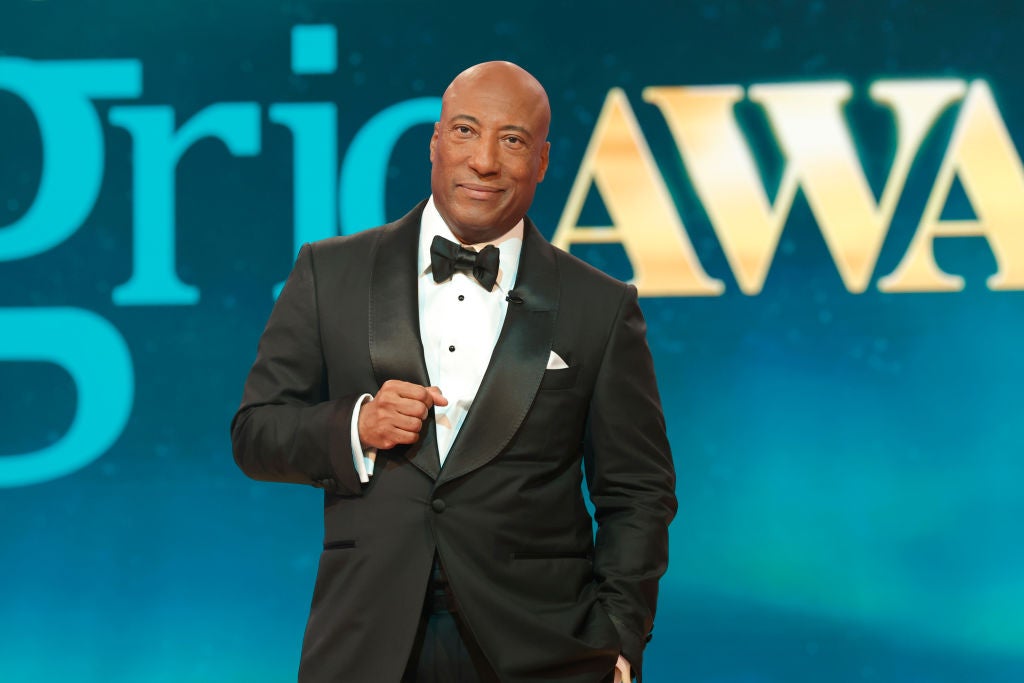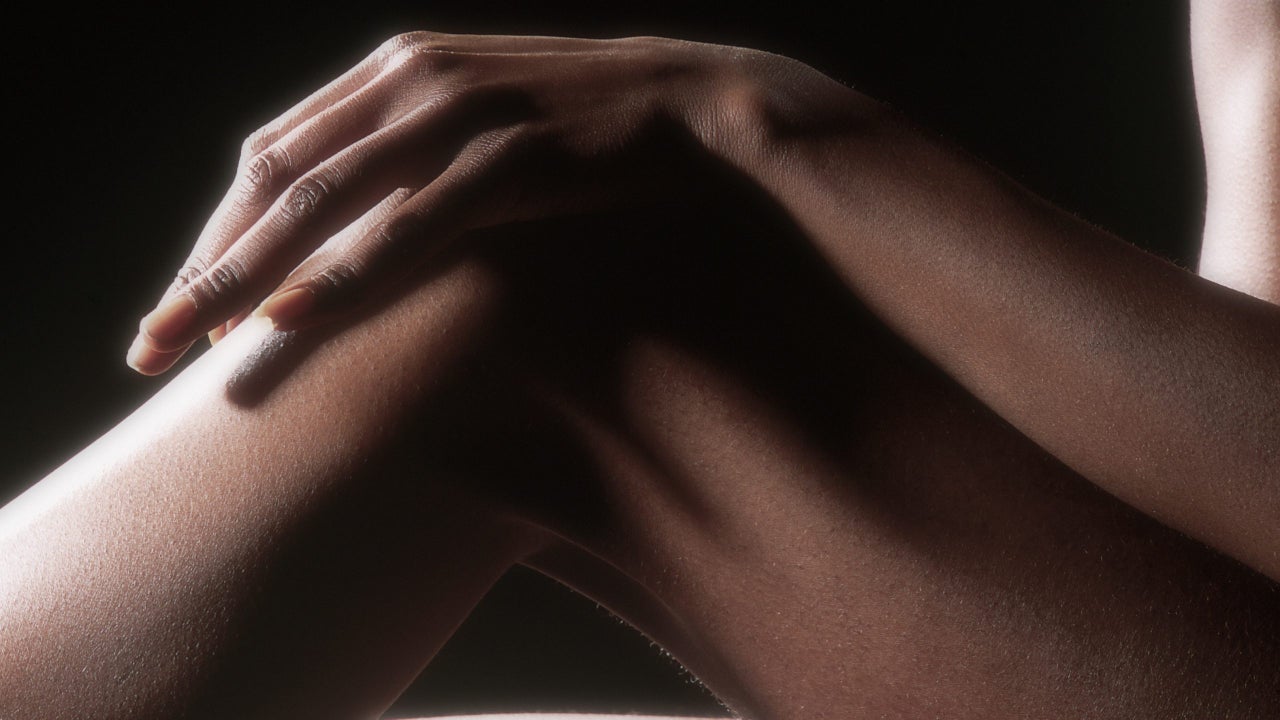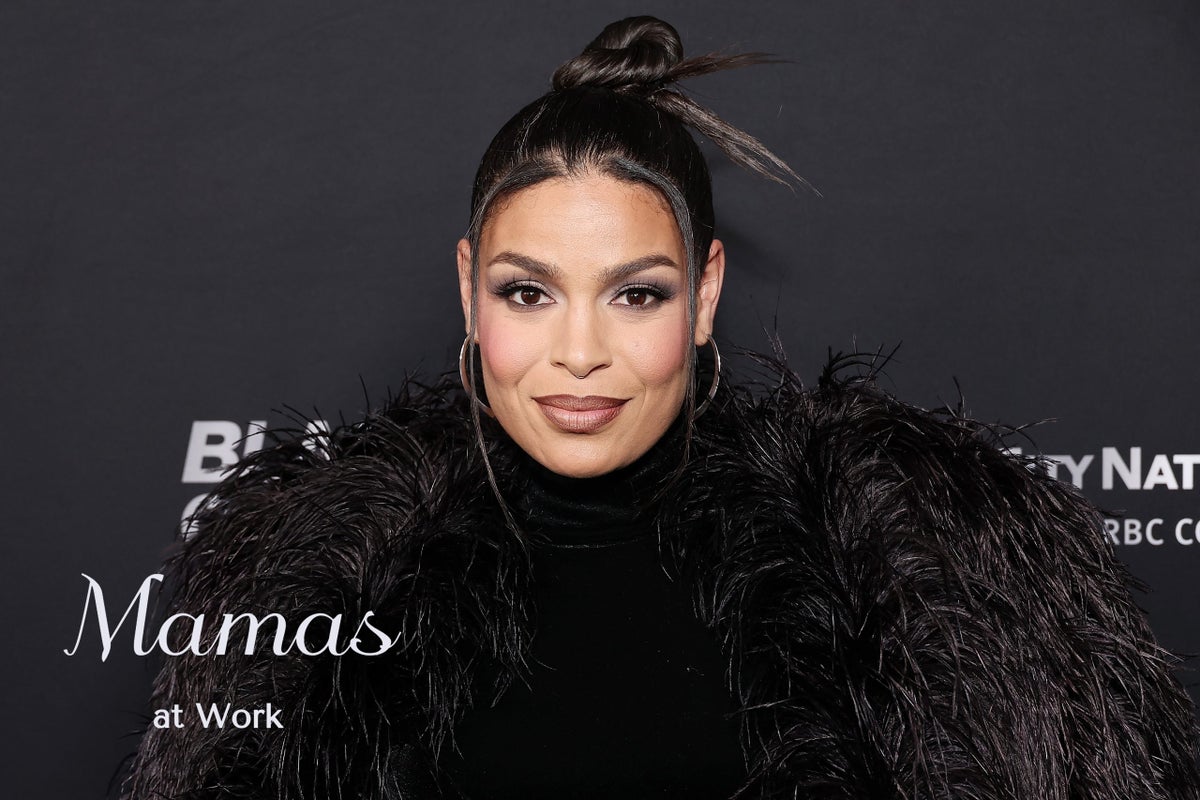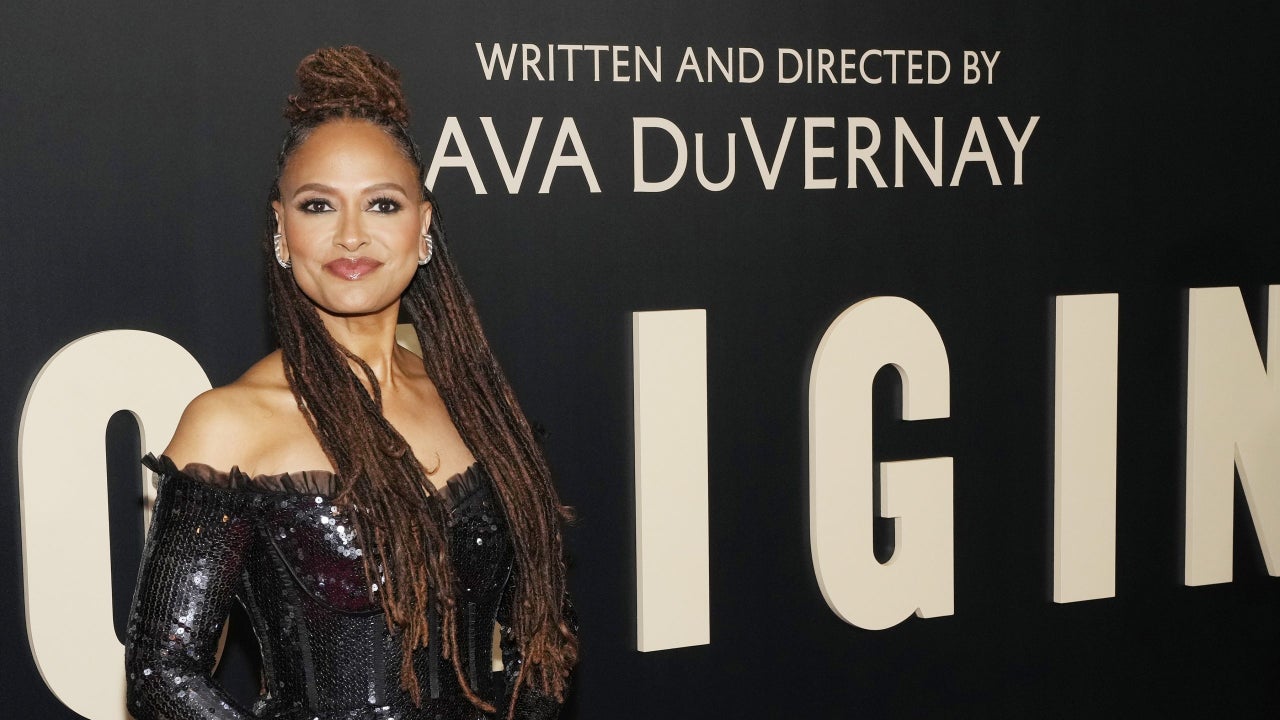
Ava DuVernay’s sharp eye for Black character-building and epic storytelling prevails through the emotional landscape of her new film, Origin. Based on Isabel Wilkerson’s book, Caste: The Origins of Our Discontents, DuVernay animates Wilkerson’s nonfiction research to flush out a story of loss, grief, and human perseverance. The character of Wilkerson played by Aunjanue Ellis-Taylor is in the center of Duvernay’s cinematic prowess where her character uncovers pivotal stories that explain the divisive nature of our globe’s history.
Origin is an intertwining film that connects different characters in time over their shared experiences over collective grief. Shot all around the world in New Delhi India, Berlin, Germany, and rooted in Savannah Georgia — Aunjanue Ellis-Taylor illuminates Wilkerson’s real-life events as a journalist who seeks hard answers after experiencing insurmountable grief. She investigates and returns to the source of three giant crisises; the formerly hailing Nazi regime in Germany, the still-intact caste system of India, and racism in the US, that has stolen the lives of victims such as Trayvon Martin. DuVernay recreates scenes depicting the human cost of historical events, compelling the audience to reflect harshly on themselves and question the cruelty with which humans have treated each other throughout history.
“I was very fascinated by the topics that Isabel Wilkerson shares by the research that she presented,” DuVernay tells ESSENCE. “I became convinced that more people needed to know about ‘caste,’ so I set out to make it into a film that could be accessible to more people so folks could congregate around the ideas.”
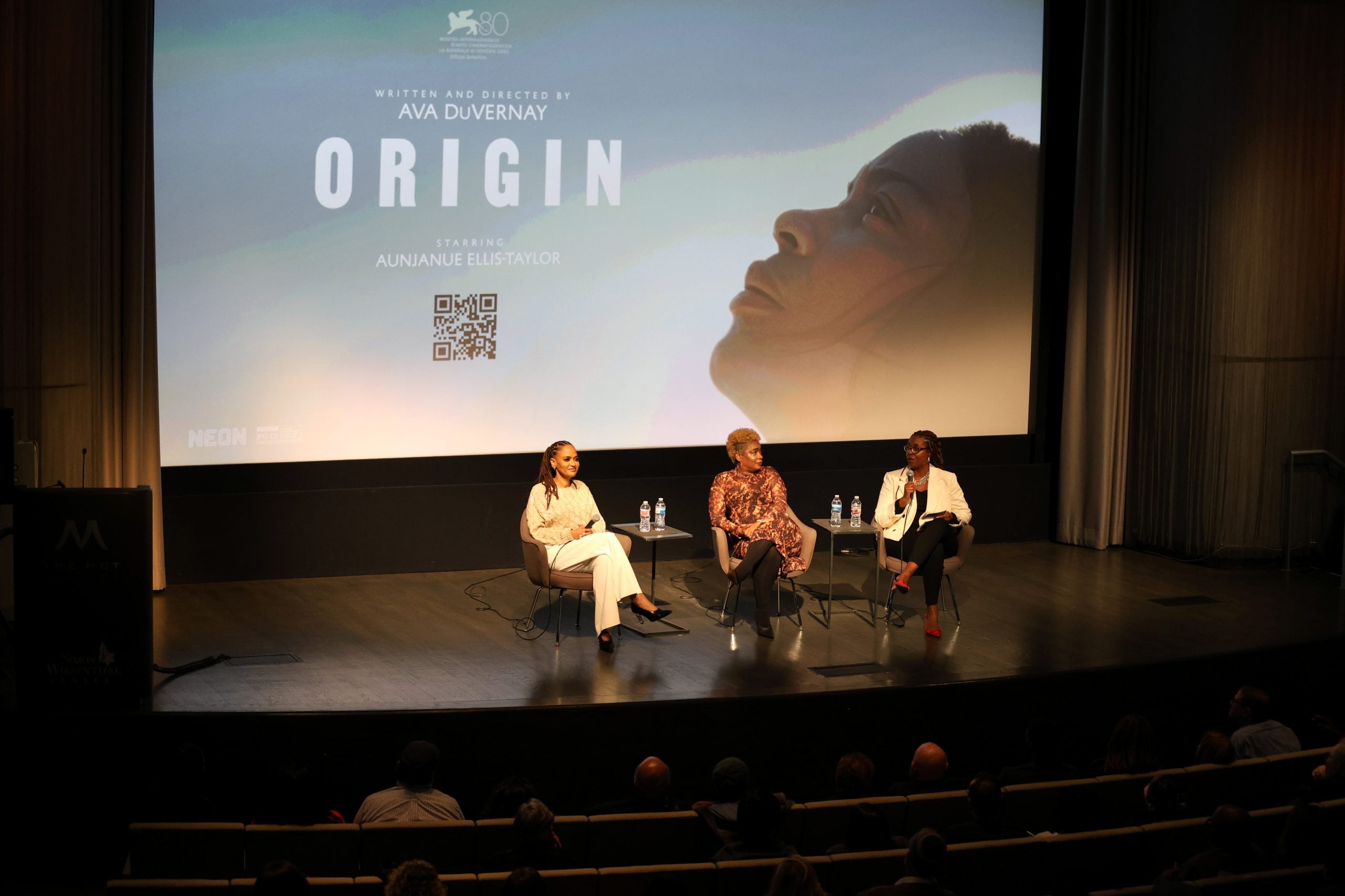
The filmmaker known for 13th, Selma, and When They See Us took on Origin full force by self-producing the film through her production company, ARRAY. DuVernay meticulously selected leading actors, recognizing that, in order to preserve her exact vision without manipulation, she embarked on the ambitious task of shooting across three continents in just 37 days — taking matters into her own hands.
DuVernay speaks on why she felt called to create Origin, casting Aunjanue Ellis-Taylor, and seeing the world respond to arguably her best work yet.
ESSENCE: How did Isabel Wilkerson’s “Caste” make a cinematic light bulb go off in your head that this story needs to be told?
Ava DuVernay: I had to read the book three times to really grasp it and make sure that I fully understood the scope of it. Then, explaining it in cinematic terms, became a very enlightening process and one that I’m really happy I set out to do.
Considering Aunjanue’s leading performance, how were conversations surrounding the function and study of grief and loss throughout the film as you were building out Wilkerson’s character?
DuVernay: We had really great conversations. Outside of the standard actor and director conversations, we worked really hard to build Wilkerson’s character. She was the center of this story and Aunjanue Ellis-Taylor is an incredible actor. So she was very deeply engaged in all of the process of building the character together.
What about this amalgamation of inequality that is experienced everywhere inspired you to create this colorful story?
DuVernay: It was wonderful to create layers across Origins. It was a beautiful experience. We shot 37 days across 3 continents with an incredible crew of people across all of those different countries who came together and held hands to tell this story. I was able to analyze caste from various international perspectives and really learn from my collaborators in those spaces. So it was a really nourishing experience.
Did you self-reflect daily after creating so many intense scenes of loss?
DuVernay: No, I would say that I was analyzing the material based on Isabel Wilkerson’s presentation of her work in the book. I even received two years of interviews that Wilkerson graciously gave me about her personal experience. This film is about her personal experience, not mine so that was my focus to honor the stories that she told me.
What was one of the most eye-opening experiences while filming in other countries and seeing culture in motion?
DuVernay: Whenever you’re working on historical sequences, it’s important to be well researched and to have a regard for the real people whose lives you’re portraying. It’s a combination of research through text, first person accounts, and respect from people who live in those spaces still. We tried to go in with a reverence for the real people whether that’s in Germany with Holocaust experts or people from the city of Berlin who live there now who can speak to both the modernity and the history of these events. I feel a sort of responsibility to tell these depictions and study with my team whether it be in Selma or 13th or When They See Us or Origins — we will always be very detailed in those matters.


